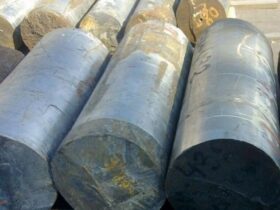Sometimes the names of settlements have a functional meaning: their internal form explains the initial plan of the initiators of the foundation of the settlement and its future purpose. So, for example, twenty kilometers from Novosibirsk, south of the city center, in the late fifties of the last century, the construction of Akademgorodok began. The name speaks to itself. The place was called upon to become a scientific center: in Akademgorodka there is one of the best universities in the country (NSU), several dozen scientific institutes and technology parks, and the Center for the Development of Innovation in the field of information technology. However, much more often the name of the settlement is not closely connected with its function (for example, the production of scientific knowledge, the extraction of natural fossils, production in the field of light industry), but with the nature of the area in which the settlement is located. So the name of the city of Bryansk is formed from the Old Russian Word, which changed its original sound as a result of the fall of the reduced, and designated a slope or valley, overgrown with thick shrubs and forest. The names of many cities appeared during the Old Russian language, and the word “dub” nevertheless has long been modified beyond recognition: it is unlikely that we would have thought of the origins without special research. However, there are cities that have not such a long history, and sometimes the name of the city is transparent, clearly related to the nature of the area. Vysokovsk, located a hundred kilometers from Moscow, as easy to guess, got its name by the nature of the terrain and is located on a hill. Meanwhile, its original purpose is spent-tone production, which was founded in the mid-nineteenth century by merchants Kalashin and Vasilyev, withstood the shifts of the owners, fires and the occupation of the Nazis, to this day remains the main one in Vysokovsk. Probably, if we wanted to reflect the “main thing” of the city, the layer would rename it into the weave, or the spraylsk. Just as Vysokovsk was formed on the basis of and, as it were, “around” weaving production, the city of Arkhangelsk was formed “around” the Mikhailo-Arkhangelsk monastery, named after the Archangel Mikhail. However, the same settlement was called “Kholmogora”: apparently, the habit of people to give “natural” names to their settlements is still strong.
Archives
- February 2026
- January 2026
- December 2025
- November 2025
- October 2025
- September 2025
- August 2025
- July 2025
- June 2025
- May 2025
- April 2025
- March 2025
- February 2025
- January 2025
- December 2024
- November 2024
- October 2024
- September 2024
- August 2024
- July 2024
- June 2024
- May 2024
- April 2024
- March 2024
- February 2024
- January 2024
- December 2023
- November 2023
- October 2023
- September 2023
- August 2023
- July 2023
- June 2023
- May 2023
- April 2023
- March 2023
- February 2023
- September 2022
- June 2022
- May 2022
- April 2022
- March 2022
- March 2019
- February 2019
- January 2019
- December 2018
- November 2018
- October 2018
- September 2018
- August 2018
- July 2018
- June 2018
- May 2018
- April 2018
- March 2018
- February 2018
- January 2018
- December 2017
- November 2017
- October 2017
- September 2017
- August 2017
- July 2017
- June 2017
- May 2017
- April 2017
- March 2017















Leave a Reply